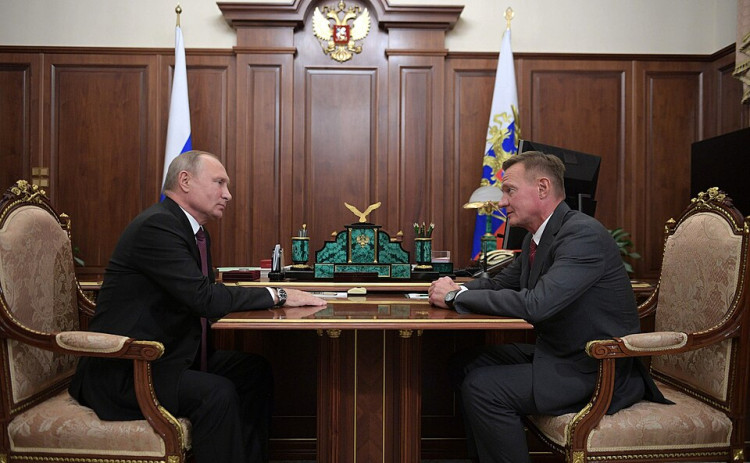Russia's former transport minister Roman Starovoit was found dead from a gunshot wound on Monday, hours after President Vladimir Putin dismissed him from office. The Kremlin has described the death as "tragic," while investigators say suicide is the most likely cause, amid mounting speculation linking the 53-year-old official to a widening corruption investigation tied to the military's defensive failures in Ukraine.
Starovoit's body was discovered in a car in the elite Moscow suburb of Odintsovo, according to Russia's Investigative Committee. Local media later reported the body was found in a nearby park next to his parked Tesla, with a state-issued pistol at his side. A criminal investigation has been opened, though the committee's early statement named suicide as the primary theory.
The official decree relieving Starovoit of his duties was signed by Putin on Monday morning. Kremlin spokesperson Dmitry Peskov said Tuesday that "such information is always tragic and sad," and confirmed the president had been immediately informed. "Naturally, we were shocked by it," Peskov added, refusing to comment further while the probe continues.
Starovoit, a former governor of the border-facing Kursk region, had reportedly come under scrutiny for his alleged involvement in the embezzlement of state funds meant for constructing military fortifications. His successor as Kursk governor, Alexei Smirnov, was arrested in April on similar charges. Multiple Russian outlets, including Kommersant and RBC, reported that investigators were preparing to arrest Starovoit before his death.
Speculation around Starovoit's fate intensified after revelations that Smirnov had allegedly implicated him in the corruption scheme. The scandal has been linked to Russia's military failure to repel a surprise August 2024 Ukrainian incursion that briefly captured parts of Kursk, marking the first time Russian territory had been occupied since World War II.
The timing of Starovoit's death also coincided with massive disruptions to Russia's air travel network, with the Federal Agency for Air Transport reporting nearly 500 canceled flights and almost 2,000 delays over the weekend. Officials cited "external interference," while the Defense Ministry claimed to have intercepted over 400 Ukrainian long-range strikes.
Adding to the week's chaos, another transport official, Andrey Korneichuk of the Federal Agency for Rail Transport, reportedly died at his workplace on Monday, possibly of acute heart failure. Authorities have not linked the two deaths.
Starovoit's dismissal follows a broader anti-corruption purge within the Russian defense and infrastructure sectors. On July 1, former Deputy Defense Minister Timur Ivanov was sentenced to 13 years in prison for embezzlement and money laundering in a high-profile case that exposed lavish spending amid the country's military struggles. Ivanov, a close associate of ex-Defense Minister Sergei Shoigu, oversaw military construction and housing.
Shoigu, who survived the internal reshuffle, was reassigned as secretary of the Security Council. Putin on Tuesday named Deputy Transport Minister Andrei Nikitin to replace Starovoit. Lawmakers quickly approved the appointment.
Starovoit is survived by two teenage daughters. He had served as governor of Kursk for five years before becoming transport minister in 2024.
Meanwhile, the Ukrainian government reported intensified Russian drone attacks over the past 24 hours, with at least 12 civilians killed and over 90 injured across the country. In Kharkiv, Russian drones struck a residential building, a kindergarten, and a commercial site early Monday morning, injuring 29 people. Additional strikes five hours later injured 17 more, including a teenage boy, according to local officials.
Ukraine's Air Force said it intercepted 75 out of 101 Shahed-type drones launched by Russia. The attacks also targeted six Ukrainian military draft offices in an apparent effort to disrupt enlistment, killing at least two people and injuring more than a dozen.






